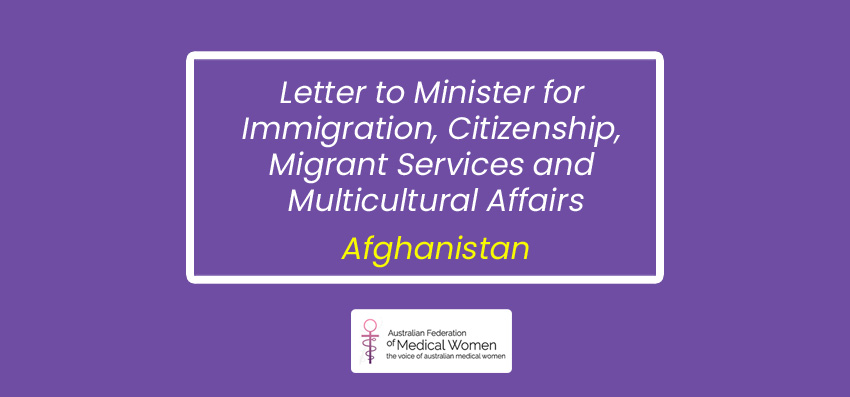Research such as the Beyond Blue National Mental Health Survey of Doctors and Medical Students demonstrates the extremely high incidence and prevalence of mental illness in our profession (1). As a group, doctors are not immune to the risk factors of mental illness experienced by the rest of the population, such as traumatic childhood and later life events, family histories of mental illness and substance use, relationship difficulties and chronic illness. Doctors additionally face significant vicarious trauma in caring for patients facing these same issues. In providing care, a doctor can be repetitively triggered and traumatised if they have a past history themselves.
Healthcare workers experience self-stigma regarding their mental health difficulties, creating a barrier to help-seeking and disclosure due to fear (or actual experiences) of alienation and judgement. There is of course also the looming threat of mandatory reporting, not only magnified as a threat in the minds of many, but also real in terms of the pain inflicted on colleagues affected.
Furthermore, doctors often have perfectionistic and self-sacrificing traits, that whilst being a strength in the caring profession, also leads to vulnerability for mental ill-health. Add to this the often hostile nature of the healthcare industry, ruthless expectations and long hours of work. Recently, a brave young doctor spoke out publicly about burnout and the unacceptable state of the medical culture, about why she gave up her dreams and resigned from her role as a plastic and reconstructive surgery registrar. She has since become the centre of a media firestorm. Please see the articles below under “Miko’s Story”.
How does this affect medical women in particular?
The mental health challenges faced by doctors is compounded for medical women by the ongoing issues of sexual discrimination and harassment in the workforce, the gender pay gap, the additional expectations on women as mothers and carers, as well as the endemic issue of domestic violence women face (see our separate advocacy statements on these issues).
There is compelling evidence of increased suicide risk for all medical practitioners, but particularly for female doctors (2). One study found that the prevalence of depression among female medical students was 10 times that of the general population, and a study of NSW medical students found that stress and burnout levels steadily increased through their medical training, peaking in their intern year (3).
What can be done?
It is vital to implement strategies to raise awareness of the common nature of mental ill health in medical professionals and to reduce barriers to seeking help. One example in Victoria that seeks to address the issue of access to care and support for medical professionals suffering from mental illness is the Victorian Doctor’s Health Programme (see link below).
Where does Gender Equity come in?
The mental health of men, women and gender-diverse doctors, all benefit from improving gender equality. For example, supporting a better work-family balance through flexible leave and paternity leave arrangements is positive not just for women, but also for men. Women have been unfairly and profoundly limited by the discrimination they have collectively experienced on the basis of sex and gender, and this requires targeted strategies to redress the imbalance and achieve ‘women’s equality’.
The VMWS advocates for the mental health of all doctors through awareness, education and policy change. We can also advocate for individual medical women facing work challenges related to their mental health. Please contact us to find out how we can support you.
The Victorian Doctors’ Health Program
The Victorian Doctors’ Health Program (VDHP) is a confidential and compassionate service for doctors and medical students with health concerns including stress and anxiety problems, substance use disorders, mental health disorders, any other health problems, including physical health concerns. The VDHP has been established to ensure that a full-time dedicated service is available to meet the needs of sick and impaired doctors and medical students. It is a fully independent legal entity funded by the Medical Practitioner’s Board of Victoria and operates independently from any other organisation. The VDHP provides prompt advice to doctors and medical students who feel at risk, or who think that they may have a problem. Advice is also provided to anyone who is concerned about a doctor or medical student. This includes family, friends, professional colleagues, and hospital and clinical staff.
More Contacts
Doctors’ Health Advisory Service
NSW and ACT … 02 9437 6552
NT and SA … 08 8366 0250
Queensland … 07 3833 4352
Tasmania and Victoria … 03 92808712
WA … 08 9321 3098
New Zealand … 0800 471 2654
AMA lists of GPs willing to see junior doctors
Lifeline on 13 11 14
beyondblue on 1300 224 636
beyondblue Doctors’ health website
Suicide Callback Service 1300 659 467
Further Reading
We Can Change our Medical Culture
https://everydoctor.org/2018/10/22/we-can-change-our-medical-culture/?fbclid=IwAR2XB3TxFUUgH95Ti_B0pZpxpuWV8VmsiWpvsLFI5eh5csIS52A137nbSQ8
When a Doctor Says “I am Depressed”
https://insightplus.mja.com.au/2019/3/when-a-doctor-says-i-am-depressed/?fbclid=IwAR3jAxv7hAcfjTxbCyMJBa6iHu8drF3MdVvT6psgM3E7gGwIKdAEOFdbgKA
Burnout in the medical profession: not a rite of passage
https://www.mja.com.au/journal/2018/208/11/burnout-medical-profession-not-rite-passage
References:
- Beyond Blue (2013). National Mental Health Survey of Doctors and Medical Students. [online] Beyond Blue, pp.30-40. Available at: https://www.beyondblue.org.au/docs/default-source/research-project-files/bl1132-report—nmhdmss-full-report_web [Accessed 30 Apr 2018].
- Clode D (2004) The Conspiracy of Silence: Emotional health among medical practitioners. Royal Australian College of General Practitioners, South Melbourne.
- Willcock SM, Day MG, Tennant CC, Allard BJ. Burnout and psychiatric morbidity in new medical graduates. Medical Journal of Australia 2004; 181(7):357-60.


